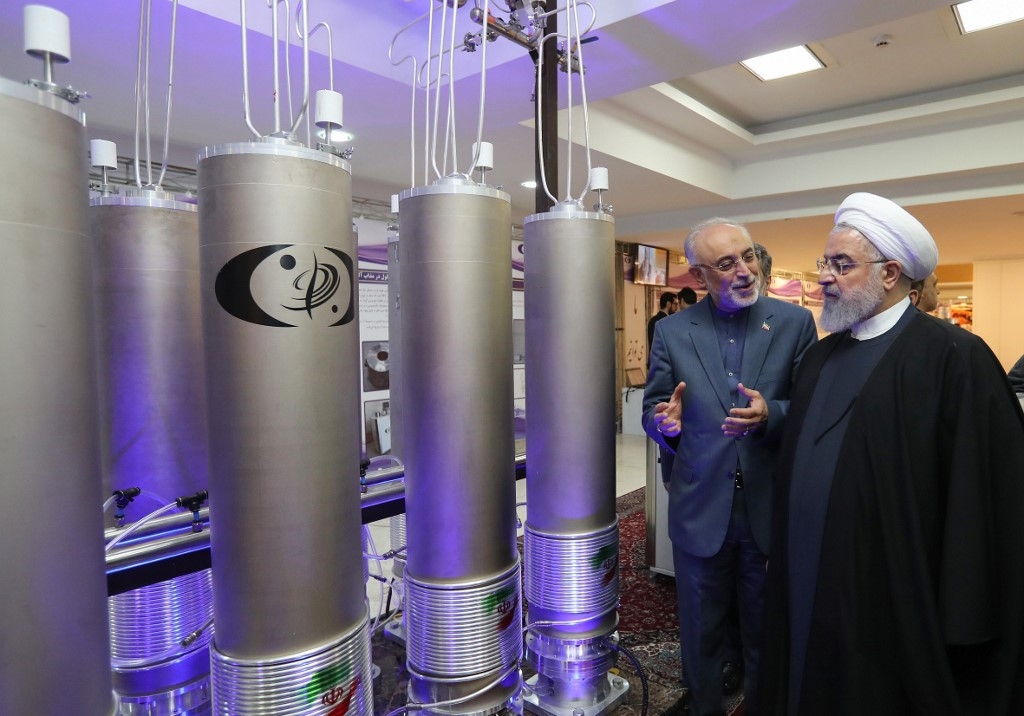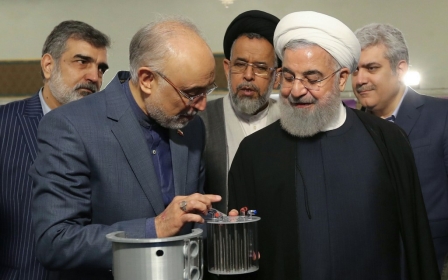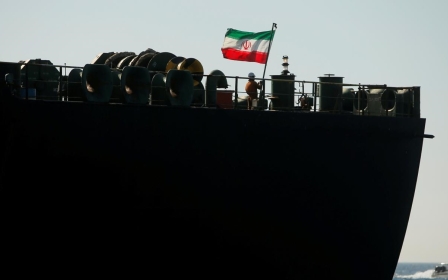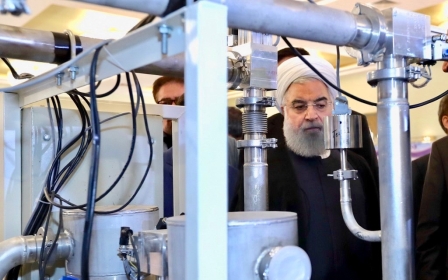Iran warns nuclear deal close to collapse

Iran has warned of the impending collapse of the 2015 nuclear deal it struck with world powers after it fired up facilities that advance its nuclear capabilities.
Iran said on Saturday it had taken further steps away from its commitments under the nuclear deal, which it has threatened eventually to abandon if Europe does not counter the sanctions imposed when the US broke off from the agreement in 2018.
Though Iran denies it has any nuclear ambitions, its Atomic Energy Organisation said it had activated advanced centrifuges that allow it to enrich uranium beyond 20 percent, several times higher than the limit set by the deal, though it has no immediate plans to do so.
The jump brings Iran closer to the 90 percent enrichment levels required for nuclear weapons, though it says the capacity would be used for a nuclear power plant.
"We have started lifting limitations on our Research and Development imposed by the deal... It will include development of more rapid and advanced centrifuges," Iranian nuclear agency spokesman Behrouz Kamalvandi told a televised news conference.
New MEE newsletter: Jerusalem Dispatch
Sign up to get the latest insights and analysis on Israel-Palestine, alongside Turkey Unpacked and other MEE newsletters
"The European parties to the deal should know that there is not much time left, and if there is some action to be taken [to salvage the nuclear deal], it should be done quickly."
The 2015 pact curbed Iran's disputed nuclear programme in exchange for relief from sanctions, but it has unravelled since the United States pulled out of it last year and acted to strangle Iran's oil trade to push the country into wider security concessions.
Since May, Iran has begun to scale back its commitments to the pact in retaliation for US President Donald Trump's "maximum pressure" campaign since he exited the deal and reimposed sanctions to force Tehran back into negotiations.
Iran says its measures are reversible if the European side find a way to protect its vital oil exports from Washington's sanctions.
French defence minister Florence Parly said on Saturday that France will continue efforts to bring Iran into full compliance with the nuclear deal.
"We can only confirm our goal, which is to bring Iran to fully respect the Vienna deal," Parly told a news conference on Saturday with U.S. Defense Secretary Mark Esper in Paris.
"We must do everything we can to contribute to ease tensions with Iran and to ensure navigation safety," she added.
The deal capped the number of centrifuge enrichment machines installed in Iran at roughly 6,000, down from around 19,000 before 2015. It allows Iran to refine uranium only with first-generation IR-1 centrifuges and to use small numbers of more advanced centrifuges solely for research, but without stockpiling enriched uranium, for a period of 10 years.
"Machines developed by our own research and development will help accumulate reserves. This was done yesterday and announced to the IAEA today," Kamalvandi said, referring to the UN nuclear watchdog, which is monitoring compliance with the deal.
Advanced centrifuges can enrich at a much faster pace.
"The UN nuclear watchdog has been informed about our new nuclear steps, and it still has access to our nuclear sites," Kamalvandi said.
France, Germany and Britain have struggled to save the deal by setting up a barter trade mechanism with Iran, but that has yet to get off the ground, and Tehran on Wednesday set a 60-day deadline for the Europeans.
"We do not currently intend to make any changes to IAEA inspections, and our transparency obligations are being met as before," Kamalvandi said.
"[But] when the other sides do not carry out their commitments, they should not expect Iran to fulfil its commitments" to limit nuclear capacity set by the deal.
Middle East Eye delivers independent and unrivalled coverage and analysis of the Middle East, North Africa and beyond. To learn more about republishing this content and the associated fees, please fill out this form. More about MEE can be found here.




